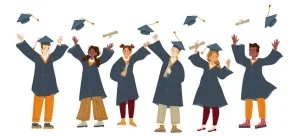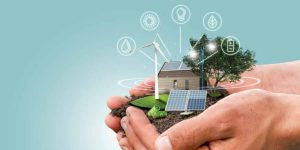A Guide to Sustainable Living for Students

Many young people today wish to make a difference in the world and one of the best ways to achieve that is to lead an environmentally conscious lifestyle. Students will have a big influence on the future, and adopting sustainable living is a wonderful initial step. Instead of making big changes all at once, living sustainably means making little, sensible decisions every day. Every action adds up to something worthwhile, whether it’s recycling or saving electricity.
The Value of Eco-Friendly Living
Making decisions that preserve the environment and guarantee a healthy planet for coming generations is known as sustainable living. It’s about minimising waste, reducing energy, and making effective use of resources. Students may make a lasting impression and encourage others to live responsibly by taking little steps like planting trees, avoiding plastic, or conserving water.
How to start using eco-friendly practices.
Start your journey toward sustainable living begins with simple eco-friendly habits.
- Reduce, Reuse, and Recycle
- Choose Sustainable Study Supplies
- Save Energy Every Day
Follow the “3 R” rule—buy only what you need, reuse containers, and recycle paper, plastic, and glass. Small steps, like using leftover notebook pages, make a difference.
Tips: Think before buying, reuse creatively, sort waste properly, and delete old digital files.
Use recycled notebooks, refillable pens, and durable folders. Go digital when possible and turn off devices to save energy.
Tips: Buy recycled, avoid plastic covers, and limit printing, share materials with classmates.
Use sunlight, LED bulbs, and unplug devices when not in use. Turn off fans, lights, and ACs to reduce bills and pollution.
Tips: Work near windows, unplug chargers, use energy-efficient devices, encourage others.
Does Food Selections Encourage Eco-Friendly Living?
Choosing local, seasonal, and plant-based foods reduces waste, fights climate change, and supports green living. Small diet changes make a big difference.
- Choose Local and Seasonal Foods
Eat fruits and vegetables that grow naturally in your region reduces transportation needs and supports local farmers. - Eat More Plant-Based Meals
Include more grains, fruits, and vegetables in your diet lowers carbon emissions and improves your health. - Cut Down Food Waste
Take only what you can finish, store leftovers properly, and compost peels or scraps to reduce overall waste.
Use Less Energy and Travel Smartly
- Walk or Cycle for Short Distances
Take a walk or bike instead of driving saves fuel, reduces pollution, and keeps you fit. - Use Public Transport or Carpool
Share rides or taking buses and trains cuts down emissions and travel costs while reducing traffic. - Choose Greener Vehicles
If possible, use electric or hybrid vehicles—they use less energy and help reduce your carbon footprint.
Sustainable Living in Hostels and Dorms
Sustainability can start right in your dorm. Sort waste properly with separate bins for plastic, paper, and organic materials. Use natural cleaners and add indoor plants to keep your space fresh. Choose eco-friendly bedding and curtains made from natural fabrics to promote a healthier environment.
- Sort and Recycle Waste Smartly – Keep separate bins for paper, plastic, and organic waste to ensure proper disposal and effective recycling.
- Use Natural Cleaners and Decor – Avoid harsh chemicals and opt for eco-friendly cleaning products; add plants to your space for fresh air and a calming atmosphere.
- Choose Eco-Friendly Materials – Select sustainable and natural fabrics for bedding, curtains, and other room items to reduce environmental impact.
How Change Can Be Created Through Student Activism
Student activism is a powerful way to protect the environment and raise awareness about climate change. Students can organize clean-up drives, plant trees, start eco-clubs, or run campaigns to reduce plastic use. Sharing tips on social media helps spread the message and encourages schools and communities to adopt eco-friendly practices.
- Join or Start Eco-Clubs – Collaborate with classmates and friends to plan and carry out initiatives that promote sustainability on campus and in your community.
- Lead Community Projects – Organize activities like clean-ups, tree planting drives, or campaigns to reduce single-use plastics and raise environmental awareness.
- Spread Awareness Online – Use social media platforms to share tips, ideas, and updates that educate and inspire others about eco-friendly habits.
- Encourage Local Change – Advocate for greener policies in schools, colleges, and local communities to make a lasting environmental impact.
Budget-Friendly Sustainable Living
Sustainable living doesn’t have to be expensive. Sharing notes or devices, repairing and reusing items, and buying second-hand books, clothes, or furniture can save money while helping the environment. These habits show that eco-friendly living is about values, not spending more.
- Buy Used or Reuse Items – Purchase second-hand books, clothes, or furniture to save money and reduce environmental waste.
- Repair Instead of Discarding – Fix broken or worn items to extend their life and avoid unnecessary disposal.
- Share with Friends – Exchange study supplies, gadgets, or other items with classmates to cut costs and reduce consumption.
- Prioritize Values over Possessions – Focus on mindful living and meaningful experiences rather than accumulating material goods.
The Role of Education in Climate Awareness
Education helps students understand how their actions affect the environment. Schools and colleges teach sustainability, energy conservation, and environmental care. Activities like group projects, workshops, and awareness campaigns spread knowledge and, combined with student activism, create a generation that practices sustainable living.
- Learn about Sustainability – Understand how daily actions impact the planet.
- Participate in Projects and Campaigns – Spread awareness among peers.
- Combine Learning with Action – Use knowledge to support eco-friendly initiatives.
Digital Choices for a Sustainable Lifestyle
Digital habits also affect the environment, as data centers use significant energy. Delete unused files and emails, manage cloud storage wisely, limit online streaming, choose e-books, and turn off devices when not in use. Small steps online support eco-friendly habits just like actions offline.
- Manage Digital Waste – Delete unnecessary files and emails.
- Use Technology Wisely – Limit streaming and optimize cloud storage.
- Choose Digital Alternatives – Prefer e-books and turn off unused devices.
How Small Daily Actions Make a Big Difference
- Carry Reusable Items – Use a lunchbox and metal straw to reduce single-use plastic.
- Plant Trees or Gardens – Add greenery at home or in your community.
- Support Local Eco-Friendly Shops – Select businesses that promote green living.
- Reduce Food Waste – Take only what you need, store leftovers, or share extras.
- Practice Consistency – Small actions done daily inspire others and build lasting habits.
Building a Greener Future Together
Students can inspire friends and family, share eco-friendly tips, and organize sustainability activities. Working together creates lasting positive change and promotes green living.
- Inspire Others: Encourage friends and family to adopt eco-friendly habits.
- Share Tips: Promote recycling, clean energy, and waste reduction.
- Organize Events: Lead sustainability activities in college or community.
- Work Together: Support each other to create lasting positive change and promote green living.
Conclusion: Every Step Counts toward Change
Living responsibly doesn’t mean being perfect; it means making the best choices each day. Students practicing sustainable living become role models for their community. By following eco-friendly habits, engaging in student activism, and staying aware of climate change, you can help protect the planet and improve your own well-being. Every small decision counts—green living starts today, and each mindful step brings us closer to a cleaner, healthier, and more sustainable world.
Billabong High International School (BHIS) knows importance of green living and caring for the planet. Contact us today to learn more about our curriculum!













